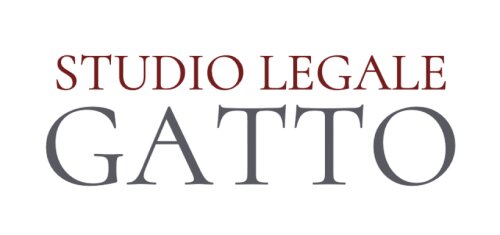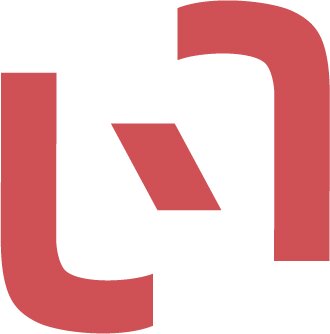Best Wage & Hour Lawyers in Milan
Share your needs with us, get contacted by law firms.
Free. Takes 2 min.
List of the best lawyers in Milan, Italy
About Wage & Hour Law in Milan, Italy
Wage and hour laws in Milan, Italy, form part of the broader Italian labor law framework designed to govern the relationship between employers and employees. These laws cover minimum wage standards, working hours, overtime pay, rest periods, and more. Key regulations are laid out in national legislation, while specific provisions can be found in collective bargaining agreements (CBAs) that may vary by sector. Understanding these regulations is crucial for both employers seeking compliance and employees ensuring their rights are protected.
Why You May Need a Lawyer
Individuals or businesses may require legal assistance regarding wage and hour issues for various reasons. Common situations that may necessitate a lawyer's involvement include disputes over unpaid wages or overtime, questions about misclassification of employee roles, violations of rest periods or working hours, and navigating complexities specific to Italy’s CBAs. Legal counsel can help in interpreting the relevant laws, providing representation in disputes, and advising on compliance to prevent legal issues from arising.
Local Laws Overview
In Milan, as in the rest of Italy, wage and hour laws derive from the Italian Constitution, the Labor Code, and European Union directives. Key aspects include:
- Minimum Wage: Italy does not have a statutory minimum wage, but CBAs often establish minimum pay scales.
- Standard Working Hours: Generally set at 40 hours per week, with a maximum of 48 hours including overtime.
- Overtime Pay: Typically remunerated at a higher rate than regular hours, often stipulated by CBAs.
- Rest Days: Employees are entitled to at least one day off per week, usually Sunday.
- Annual Leave: By law, employees are entitled to a minimum of four weeks of paid leave per year.
Frequently Asked Questions
What is the minimum wage in Milan?
Italy does not enforce a nationwide minimum wage. Salaries are generally determined by CBAs, which apply to various sectors and industries.
How are working hours determined in Milan?
Working hours are primarily determined by CBAs, typically capping regular hours at 40 per week, with flexibility depending on the sector.
What constitutes overtime work in Milan?
Any hours worked beyond the standard 40-hour workweek are generally considered overtime, though specifics can depend on sector-specific CBAs.
Are there regulations for night work?
Yes, night work is usually defined between 10 PM to 5 AM, and employees are entitled to additional compensation or benefits for working during these hours.
How is paid leave handled?
Employees are entitled to a minimum of four weeks of paid annual leave, as mandated by EU regulations and Italian labor laws.
Can an employee be fired for complaining about wage violations?
No, dismissals in retaliation for raising wage or hour concerns are prohibited. Such actions can be contested legally with the potential for reinstatement and compensation.
Are all employees protected by wage and hour laws?
Most employees are covered, but specific protection may vary based on employment contracts, roles, and sector-specific CBAs.
What should I do if I suspect my employer is violating wage and hour laws?
Consult with a labor law expert or contact relevant authorities, like the local labor inspectorate, to explore your rights and potential actions.
How can employees recover unpaid wages?
Employees can initiate legal action with the assistance of a lawyer or file a claim through labor unions or local labor offices.
Do CBAs override general labor laws?
CBAs typically provide specific provisions that complement general labor laws. They cannot derogate employee rights below legally established standards.
Additional Resources
For more information, individuals may contact:
- Direzione Territoriale del Lavoro: This local labor office can provide insights on labor disputes and enforcement.
- INPS (National Institute for Social Security): Offers information on compensation and social security benefits.
- Trade Unions: Various labor unions provide advice and representation in wage and hour matters.
Next Steps
If you need legal assistance concerning wage and hour laws in Milan, Italy, the following steps can guide you:
- Consult a Lawyer: Seek specialized advice from a lawyer experienced in Italian labor law to assess your case.
- Gather Documentation: Collect employment contracts, timesheets, pay slips, and any correspondence related to your issue.
- Consider Mediation: Explore out-of-court settlements or mediation services to resolve disputes amicably.
- Formal Complaint: If necessary, file a formal complaint to the relevant authorities with legal backing.
Understanding and navigating wage and hour laws in Milan can be complex, but with the right legal assistance, individuals and businesses can ensure compliance and fair treatment.
Lawzana helps you find the best lawyers and law firms in Milan through a curated and pre-screened list of qualified legal professionals. Our platform offers rankings and detailed profiles of attorneys and law firms, allowing you to compare based on practice areas, including Wage & Hour, experience, and client feedback.
Each profile includes a description of the firm's areas of practice, client reviews, team members and partners, year of establishment, spoken languages, office locations, contact information, social media presence, and any published articles or resources. Most firms on our platform speak English and are experienced in both local and international legal matters.
Get a quote from top-rated law firms in Milan, Italy — quickly, securely, and without unnecessary hassle.
Disclaimer:
The information provided on this page is for general informational purposes only and does not constitute legal advice. While we strive to ensure the accuracy and relevance of the content, legal information may change over time, and interpretations of the law can vary. You should always consult with a qualified legal professional for advice specific to your situation.
We disclaim all liability for actions taken or not taken based on the content of this page. If you believe any information is incorrect or outdated, please contact us, and we will review and update it where appropriate.













